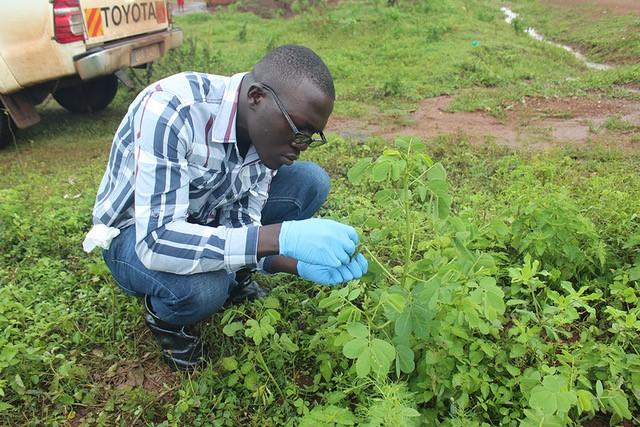
Caption
Henry Ssendagire, a Ugandan master's student working with CAES virologist Mike Deom, investigates aphids that carry viruses causing groundnut rosette disease, a serious peanut disease in sub-Saharan Africa.
Credit: University of Georgia

